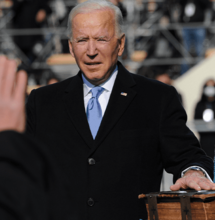New Hope for American Pot Legalization

States with voter-approved pot to be allowed to create and regulate their own implementation schemes, following federal guidelines.
States with voter-approved pot to be allowed to create and regulate their own implementation schemes, following federal guidelines.
On August 29th, 2013, the United States Justice Department announced an updated pot policy, and Attorney General Eric Holder revealed that the federal government would refrain from pressing charges against Colorado and Washington state for violating federal Cannabis laws - although the DOJ retains the right to file a preemptive lawsuit at a later date. Deputy Attorney General James Cole released a memo outlining the department's guidelines for state-level regulation of production, processing and sale of recreational Cannabis.
Highlighting priority areas to be enforced by the new policy, the statement insists that "the Department makes clear that marijuana remains an illegal drug under the Controlled Substances Act and that federal prosecutors will continue to aggressively enforce this statute."
|
Prioritizing real crime over prosecuting state-approved Cannabis infractions is one goal of the Justice Department's new pot guidelines. [© AnotherBeliever: WikiMedia Commons] |
The eight areas of focus for law enforcement include:
- Prevention of distribution of Cannabis to minors
- Preventing criminal enterprises, gangs or cartels from earning Cannabis revenue
- Stopping inter-state trafficking between legal states and those without Cannabis laws
- Keeping authorized, legitimate Cannabis enterprises "from being used as a cover or pretext for the trafficking of other illegal drugs or other illegal activity"
- Preventing firearm use and violence in legal cultivation and distribution of Cannabis
- "Preventing drugged driving and the exacerbation of other adverse public health consequences associated with marijuana use"
- Enforcing a ban on Cannabis cultivation on public land, thus increasing public safety and decreasing the detrimental environmental effects associated with such activities
- Preventing Cannabis use or possession on federal property
While good news for the pro-pot community, a coalition of law enforcement agencies immediately responded by addressing a scathing public letter to the attorney general. In it, they voiced their "extreme disappointment" that Colorado and Washington state would be permitted to implement voter-approved legal Cannabis, thereby violating federal law. The group further lamented, "It is unacceptable that the Department of Justice did not consult our organizations - whose members will be directly impacted - for meaningful input ahead of this important decision. Our organizations were given notice just thirty minutes before the official announcement was made public and were not given the adequate forum ahead of time to express our concerns with the Department's conclusion on this matter. Simply 'checking the box' by alerting law enforcement officials right before a decision is announced is not enough and certainly does not show an understanding of the value the federal, state, local and tribal law enforcement partnerships bring to the Department of Justice and the public safety discussion."
The recent string of announcements has brought about mixed feelings on both sides of the issue. Activists worry that particular attorneys or certain states will interpret these guidelines in vastly different ways, leaving some pot purveyors in legal difficulties while others remain free to conduct comparable business elsewhere. Another concern is that highly-successful pot businesses - frequently raising unwelcome federal attention - will continue to be harassed and shut down, in spite of promises to the contrary. Interpretation is key, as it prevents, for example, legitimate business owners from being detained and tried as cartel kingpins.
Chairman of the Marijuana Majority Tom Angell offered a measured response: "It's significant that United States attorneys will no longer be able to use the size or profitability of a legal marijuana business to determine whether or not it should be a target for prosecution, but the guidelines seem to leave some leeway for the feds to continue making it hard for state-legal marijuana providers to do business."
|
United States Attorney General Eric Holder [© United States Department of Justice] |
Since December of 2012, Holder had promised to address the Obama administration's official response to the legalization of recreational pot in Colorado and Washington. Breaking nearly a year of silence on the subject, in late August he had revealed the early stages of a plan for reforming the American incarceration rate, the highest in the world due at least in part to locking up large numbers of non-violent drug 'criminals'. Holder had announced efforts to scale back mandatory minimum sentences and said that he will deter other United States attorneys from severely sentencing low-level or first-time drug offenders. Thus, police and legal resources - as well as prison cells - would be reserved for those perpetrating actual crimes.
The next step towards legalization would be to re-schedule or downgrade pot from its ignominious position as a Schedule I drug - meaning that it offers no health or medical benefits and poses great danger to society. Re-scheduling would disable the federal crackdown on medical dispensaries across the country, as well as automatically lowering incarceration rates, ruining fewer lives (conviction-related job losses and stigma, frozen assets, split families, etc.) and potentially leading to advances in various Cannabis fields. For example, if weed were a lower schedule the DEA would have less jurisdiction over the substance, leading to increased laboratory access and hence more scientific freedom to research and experiment with Cannabis.
During a series of August press briefings, White House Deputy Press Secretary John Earnest embittered a small victory for proponents of the aforementioned by reiterating President Obama's disinterest in neither re-scheduling pot and thus changing federal law, nor in allowing extensive scientific research into medical Cannabis. This, in spite of the fact that twenty states and the District of Columbia currently have medi-weed laws of some sort.
The silver lining was Earnest's revelation that the Obama administration's official pot position would shift its focus from incarcerating large numbers of minor pot offenders to catching and prosecuting the real criminals, such as traffickers or large-scale, unlicensed growers. Earnest had insisted that "the priority in terms of the dedication of law enforcement resources should be targeted toward our drug kingpins, drug traffickers and others who perpetrate violence in the conduct of the drug trade."
For many, this statement is reminiscent of President Obama's broken campaign promises of backing away from state-approved medical Cannabis industries across the nation. In spite of guidelines such as the Ogden Memo, more dispensaries were closed during President Obama's first term than throughout the entire presidency of George W. Bush.
Less than a week after Earnest had clarified President Obama's current position on Cannabis, Senate Judiciary Committee Chairman Patrick Leahy (D - VT) announced a September 10th hearing in which the discord between federal and state laws will be examined. FBI Director James Comey and Deputy Attorney General James Cole, in addition to Eric Holder, have been invited to testify at the hearing, titled Conflicts Between State and Federal Marijuana Laws.
In the statement, Senator Leahy noted, "It is important, especially at a time of budget constraints, to determine whether it is the best use of federal resources to prosecute the personal or medicinal use of marijuana in states that have made such consumption legal." Senator Leahy revealed his own support for a dialog between legal pot states and the feds, adding, "I believe that these state laws should be respected. At a minimum, there should be guidance about enforcement from the federal government."



